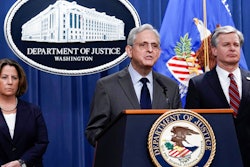GENEVA (AP) -- The head of the World Trade Organization warned Wednesday that talks to forge a new global trade agreement have to speed up if a deal is to be reached next year.
Trade ministers from some 30 countries pledged earlier this month to complete the so-called Doha round in 2010, nine years and several missed deadlines after it was launched in Qatar's capital.
"It's certainly doable, the political signal is that they want to do it, the reality is that the negotiating process in Geneva is too slow," WTO Director-General Pascal Lamy said.
Lamy said he would travel to the Group of 20 meeting of leaders from rich and develping countries in Pittsburgh next week and hoped to present leaders of the major industrialized and developing economies with a clear timetable for clinching a deal, provided certain long-standing differences can be overcome.
The Doha round aims to increase world trade through a broad compromise that would let developing countries sell more produce to the rich world. In return, the U.S., 27-country European Union and Japan would get new chances for their manufacturers and service providers to enter the emerging markets of Brazil, China and India.
"It's now a question of isolating a few issues that have political prominence and then cracking them, and then the rest will fall in place," he told reporters in Geneva.
Lamy said the G-20 was the right forum to show leadership on major global issues because emerging economies take part in discussions, unlike at meetings of the more exclusive Group of Eight.
Fears have grown in recent days that the United States and China may be squaring up for a trade war after Washington raised import tariffs on Chinese-made tires, prompting Beijing to make a formal complaint to the WTO that could lead to retaliatory measures.
Lamy said he, too, was concerned about the possible consequences of this latest dispute between the world's two biggest trading partners.
"It's the sort of situation that increases the risk of tit-for-tat," he said.





















